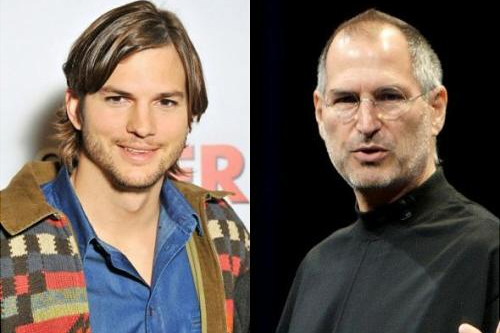Ashton Kutcher on His Best Investment (It’s Not What You Think)
You probably know some of them: Michael Kelso from “That 70s Show,” Walden Schmidt from “Two and a Half Men,” and the star of dozens of movies, including “The Butterfly Effect” and “No Strings Attached.”
Others you might not be as familiar with. Before becoming famous, Kutcher worked jobs ranging from clean-up on construction crews to skinning and cleaning deer at a meat locker to baling hay.
More recently, he’s co-founded a human rights organization (THORN), and a digital media company (A Plus), and, for the last several years, focused on one gig he seems particularly skilled at: startup investor.
In 2011, he co-founded venture capital firm A-Grade Investments, and in 2015, Sound Ventures, and has since poured millions into companies like Airbnb, Uber, and (ahem, full disclosure) Acorns. We talked with Kutcher about investing, financial firsts, and his best advice for living the life you want.
What inspired you to invest in startups?
I recognized early on that there were a lot of emerging companies building better, cleaner, easier solutions to everyday problems, and I had an ability and interest to bring those solutions to the masses.
I spend a lot of time thinking about new and simpler ways to do things, but don’t have enough time to execute on all those ideas. So I found people who were executing on them and invested in their success.
What gets you excited about a particular company?
I look for driven people who aren’t afraid of working hard, but have the savvy to work smart. I also study pain-points in life and look for a large volume of people who are hacking a solution or using an antiquated system to solve their problem.
But the real thing that sweeps me away is when I get the feeling that something is obvious, and it just seems like, “Of course this is how we should be doing it!” Or when an idea is so wonderful that you spend hours thinking about various iterations and applications.

What do you consider your best investment?
My relationships – taking the time to get to know people, what motivates them, what their challenges are. These things are often overlooked. Investors get so wrapped up in returns and numbers that they forget that the true privilege of their position is to share a journey with exceptional people.
Looking forward, what area of investing captures your imagination?
We have a long way to go in improving the standard of happiness for billions around the world. There are deep needs that exist in people’s lives, and investing in solutions will always be inspiring. Life shouldn’t be something people endure; it can be one magical discovery after the next.
So, tell us about your first jobs.
When I was really young, I mowed lawns and worked clean-up on construction crews. Then I started roofing when I was old enough to climb a ladder. I also did janitorial work at warehouses and factories. I worked at a supermarket deli, washed dishes in a diner, skinned and cleaned deer at a meat locker, detasseled corn, baled hay, and did masonry work.
What’s the first thing you saved for?
When I was a 13, I saved $1,400 for a snowmobile. I worked after school and on weekends for one and a half years, and put every cent into a savings account.
What was your scariest financial decision?
The purchase of my first home. I was scared because I took on debt greater than my cash on hand. I don’t sleep well when I owe people money. I believe freedom is a product of flexibility of choice, and debt leaves you beholden to practical choices.
If you could impart some wisdom to your younger self, what would it be?
Don’t spend until you have a very clear plan with benchmarks for success and failure. I’ve found myself as an entrepreneur, investor, and even with my personal finances pushing too hard on optimism: I blindly believe things are just going to work because I build an absolute justification for why they will, and then I end up over-investing in something that isn’t working.
Optimism is priceless – but only when coupled with measurement.
What would you tell someone who asks what they should invest in?
First: Yourself! Double down on your own expertise, your passion, the thing you do when you have free time.
Then pay attention. If you work in a grocery store, pay attention to the items that you can’t keep in stock, and the new things that are hitting the shelf. If you are a contractor, investigate the new materials showing up on jobs. Who makes them? Why are they better? You may have a more educated opinion than you are giving yourself credit for. Too often, people speculate on investments based on what’s making someone else rich and forget to do a deep index on their own behaviors.
Invest in that which you would like to see become a reality. Worst-case scenario, you lose money – but at least you will get the life you want.








